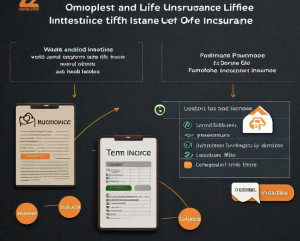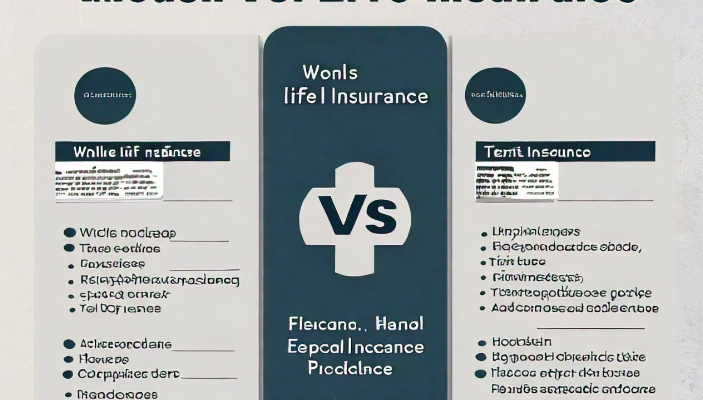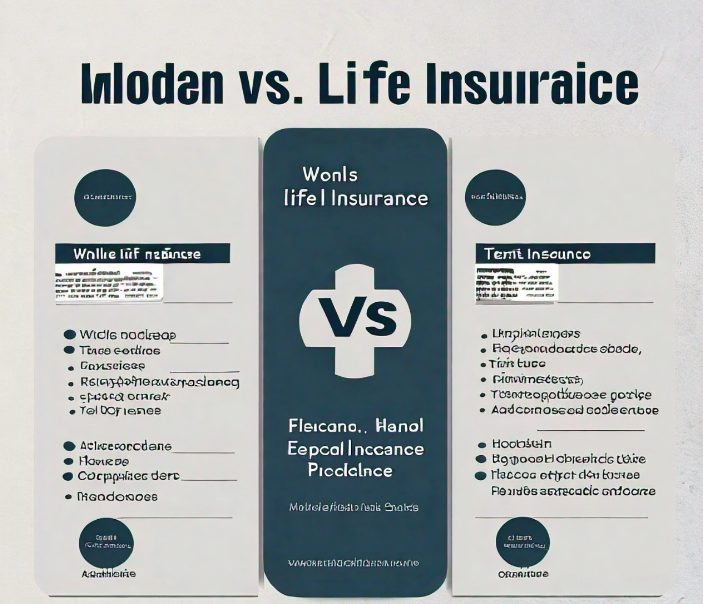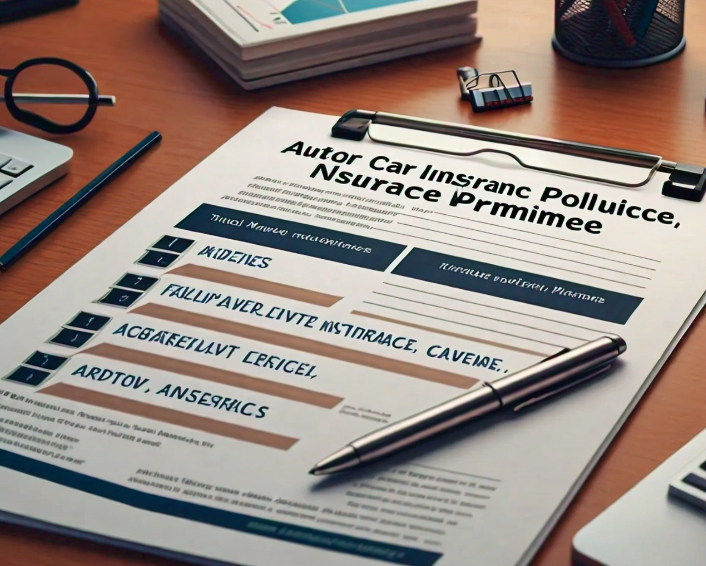Whole vs. Term Life Insurance: What You Need to Know
Navigating the world of life insurance can feel like trying to find your way through a dense fog. You know you need it, but understanding which type is right for you—whole or term—can be tricky. Don’t worry! In this guide, we’ll break down everything you need to know to make an informed decision.
Understanding Life Insurance Basics
What is Life Insurance?
At its core, life insurance is a contract between you and an insurance company. You pay premiums, and in return, the insurer promises to pay a designated amount of money to your beneficiaries upon your death. It’s a financial safety net that provides peace of mind for you and your loved ones.
Why Do You Need Life Insurance?
Life insurance serves multiple purposes. It can cover funeral expenses, pay off debts, replace lost income, and ensure your family maintains their standard of living. Think of it as a way to protect your family’s financial future when you’re no longer there.
What is Term Life Insurance?
Term life insurance is straightforward—it provides coverage for a specified period, usually ranging from 10 to 30 years.
Key Features of Term Life Insurance
Coverage Periods
Term life insurance is designed for those who need coverage for a specific time frame. For instance, if you have young children, you might want coverage until they graduate college.
Premium Costs
Term life tends to have lower premiums compared to whole life. This affordability makes it attractive for young families or individuals on a budget.
Advantages of Term Life Insurance
One of the biggest advantages of term life insurance is its affordability. With lower premiums, you can often secure a larger death benefit, giving your family more protection for less money. Plus, the simplicity of term life makes it easy to understand.
Disadvantages of Term Life Insurance
However, term life has its downsides. Once the term ends, you’re left without coverage unless you renew, which could be more expensive as you age. Additionally, there’s no cash value accumulation, meaning you don’t get any money back if you outlive the policy.

What is Whole Life Insurance?
Whole life insurance, on the other hand, offers lifelong coverage.
Key Features of Whole Life Insurance
Lifetime Coverage
Whole life insurance is designed to last your entire life, as long as premiums are paid. This means your beneficiaries will receive the death benefit regardless of when you pass away.
Cash Value Accumulation
One of the unique features of whole life insurance is the cash value component. A portion of your premium goes into a savings account that grows over time, allowing you to borrow against it or withdraw funds if needed.
Advantages of Whole Life Insurance
Whole life insurance offers stability and peace of mind. Since it provides lifelong coverage, you won’t have to worry about renewing or losing your policy. Additionally, the cash value can serve as a financial resource in emergencies.
Disadvantages of Whole Life Insurance
However, whole life insurance comes with higher premiums. The cost can be a significant factor for many, making it less accessible than term life for individuals on a tight budget. Also, the cash value growth can be slow compared to other investment options.
Key Differences Between Whole and Term Life Insurance
Now that we’ve outlined both types, let’s dive into how they compare.

Coverage Duration
Term life insurance provides coverage for a set period, while whole life insurance lasts a lifetime. If you need temporary coverage, term might be the way to go. For lifelong peace of mind, whole life is a solid choice.
Premium Costs
In general, term life insurance has lower premiums than whole life insurance. This makes term policies easier to fit into a monthly budget, especially for younger individuals and families.
Cash Value Component
Whole life insurance accumulates cash value, while term life does not. This feature can be advantageous if you want a policy that doubles as an investment vehicle, but remember, it comes with a higher price tag.
Choosing the Right Policy for You
So, how do you decide which type of life insurance is right for you?
Assessing Your Financial Goals
Start by identifying your financial goals. Do you need coverage to support your family for a certain number of years, or are you looking for a lifelong solution? Your answer will guide your decision.
Evaluating Your Family’s Needs
Consider your family’s needs. If you have dependents, they may require support for years to come. If they’re self-sufficient, term life might suffice.
Considering Your Budget
Don’t forget to factor in your budget. Can you comfortably afford the higher premiums of whole life insurance, or would term life fit better within your financial plan?
Common Misconceptions About Life Insurance
Let’s tackle some myths that might be clouding your judgment.
“Life Insurance is Only for the Elderly”
Many people think life insurance is only for older adults. In reality, the younger you are when you get insured, the lower your premiums will be.
“Term Life Insurance Doesn’t Pay Out”
Another misconception is that term life insurance never pays out. This is false! If you pass away during the term, your beneficiaries receive the payout, just like with whole life insurance.

Conclusion
Choosing between whole and term life insurance doesn’t have to be overwhelming. By understanding the differences, assessing your needs, and considering your financial goals, you can make a choice that secures your family’s future. Whether you opt for the affordability of term life or the lifelong coverage of whole life, having insurance is a vital step in protecting your loved ones.
FAQs About Whole vs. Term Life Insurance
Can I convert my term policy to whole life?
Yes, many insurers offer a conversion option that allows you to switch from a term policy to a whole life policy without undergoing additional health checks.
How much life insurance do I need?
The amount varies based on your financial obligations, such as debts, income replacement, and future expenses like college tuition. A common rule of thumb is to have 10-15 times your annual income.
Is whole life insurance a good investment?
Whole life insurance can be a good investment for those looking for lifelong coverage and cash value growth. However, it might not be the best option for everyone compared to other investment avenues.
What happens if I outlive my term policy?
If you outlive your term policy, it simply expires. You can often renew it, but expect higher premiums due to your age.
Can I have both term and whole life insurance?
Absolutely! Many people choose to have both to cover immediate needs with term insurance while also building long-term security with whole life. This combo can provide comprehensive coverage tailored to your needs.
Common Types of Insura0nce Fraud | ||
Cyber Liability Insurance | ||
Comparing International Travel Insurance | ||
Understanding Liability Coverage | ||
Factors Affecting Auto Insurance Premiums | ||
Whole vs. Term Life Insurance | ||
Affordable Care Act (ACA) Plans | ||
How to Protect Yourself from Fraud | ||
Short-term vs. Long-term Disability Insurance | ||
Importance of Business Interruption Insurance | ||
Common Exclusions in Pet Insurance | ||
Essential Coverage For Small Businesses | ||
Best Travel Insurance Plans | ||
Home Insurance For First-Time Buyers | ||
Comparing Care Insurance Rates | ||
Best Life Insurance Companies | ||
Short-term Health Insurance |























